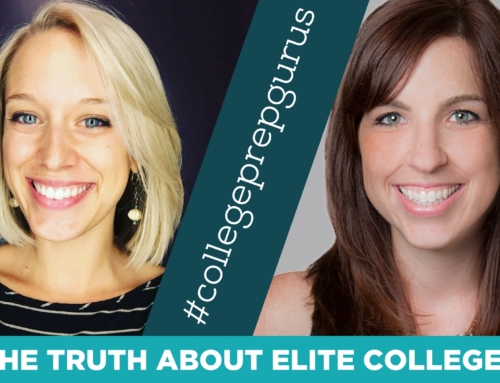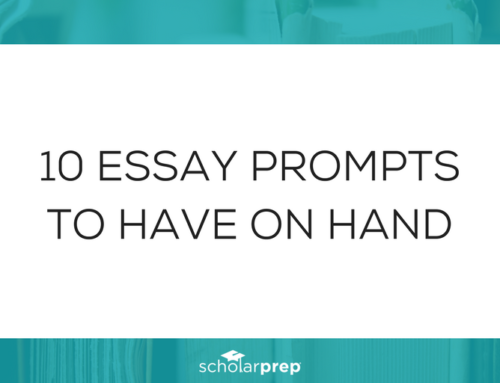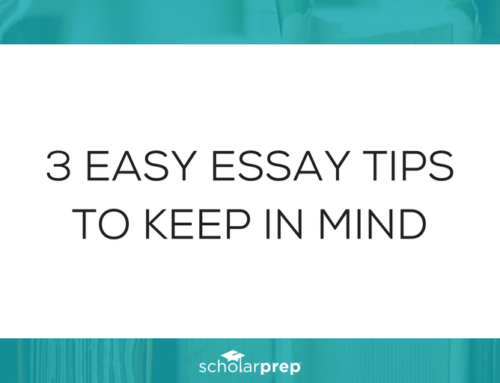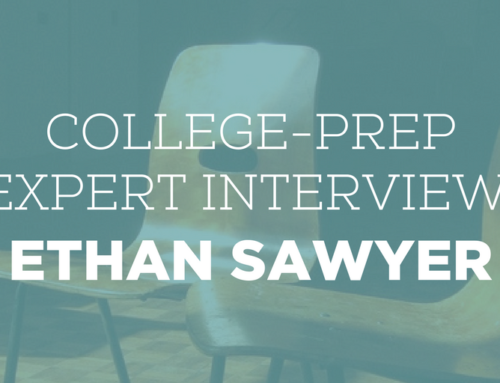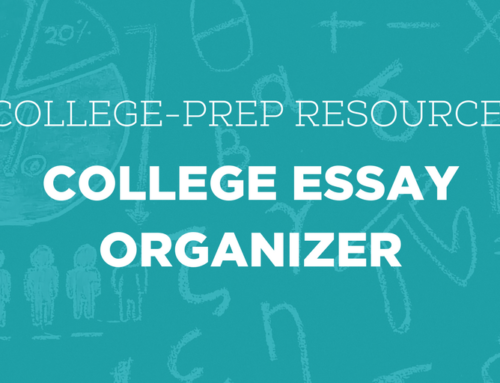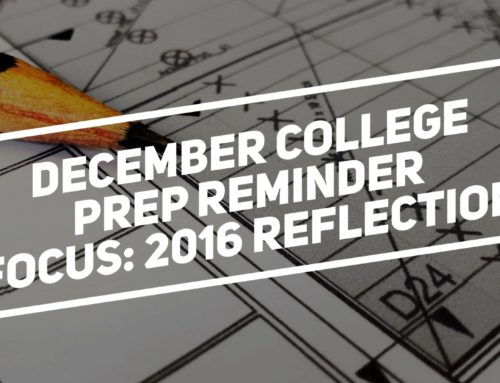The essay portion of any college or scholarship application can be daunting, but with a little preparation and guidance, you can write a winner!
1. Start Now!
Can I write the essay the night before?
Not likely.
One of the best ways to set yourself up for success with your essay is to start early.
According to our friend Ethan Sawyer, A.K.A. The College Essay Guy, it can take between 15 to 25 hours on average to write a personal statement that is really fantastic.
For most students, this means setting aside time in the weeks, or even months leading up to a deadline. However, here at ScholarPrep, we’re big proponents of starting well before the looming deadlines of senior year. Start practicing writing scholarships essays early in high school to get comfortable with the process.
Some students find it helpful to give themselves three weeks to complete the scholarship essay. The first week would be solely dedicated to brainstorming and planning out your essay. The following week, you would focus on writing the essay. This would allow the third and final week to be used for proofreading and editing.
However, if you are aware of the essay earlier and have more time to work on it, start immediately!
2. Know Your Audience
There is an audience for an essay?
You betcha!
Your audience might be the judging committee or group who makes the final decision about who wins the scholarship. The audience could also be a college admissions officer deciding whether or not you are the right fit for the school.
It is essential to know their values and the purpose of the essay, while also still staying true to yourself.
For example, if you are applying to this year’s Burger King Foundation Scholarship, you should research their company mission and purpose of the scholarship and then use that information to guide your essay writing. For Burger King, they value their people, the environment, and they focus on bettering the future for everyone. If the scholarship also mentions any of these values, then you will definitely want to tie these aspects into your essay.
3. Read the Instructions and Abide by Them!
There are instructions to writing an essay?
Yes!
College and scholarship essays often come with a very specific set of instructions.
Here are some examples of the kind of instructions that can be given:
- Use Times New Roman Font
- Double Space
- 12 pt Font
- 1 inch Margins
- 500 words maximum
- Send only as a .pdf
While some scholarship essays will be very clear with their instructions, others will not. This is when you should stick to the basic font, double spacing, and margins used when you open a document. In addition, if you have any questions you can always email or call the appropriate contact for the scholarship or college.
4. Outline/Brainstorm
Should I just start writing?
Some students can sit down and the words will flow onto the paper effortlessly.
Others will need to spend some time brainstorming and reflecting on the prompt before writing. Here are some questions you can ask yourself to help create a basic outline and brainstorm what you want to say:
- What is it that I am trying to convey or share in this essay?
- In what ways am I going to answer the prompt?
- What are my main points?
- Is there anything else I want to include?
Once you get a basic outline of your essay it will be easier to start writing your winning scholarship!
5. Introduction is Crucial
How should it start?
First impressions are everything!
The introduction is the first impression that your reader gets from your essay. It is essential to come out with a bang and wow the reader. Make your point and make it clear. Try to imagine what you can say that will grab their attention after reading hundreds or thousands of essays. Once you get their attention and make that impression they won’t be able to forget about you.
6. Create a Catchy Title
Essays have titles?
Not all essays will need a title, but if allowed, this is a great way to add extra value and interest.
Including a catchy title is a great way to grab the reader’s attention, unless the instructions of the essay specifically state that you are not allowed to include a title. This is just another way that you are able to make an impression and stand out, even before the essay begins.
One word of advice: don’t use generic titles such as “Why I deserve this scholarship.” The title should ADD something to the reader’s experience of your essay.
7. Edit, Proofread, and Double-Check Your Essay
Is spellcheck good enough?
Absolutely not!
A winning scholarship essay should be free of grammatical and spelling errors.
It is extremely important to take the time to go back and re-read your essay. Read it slowly, read it backwards, take a break and read it again.
In addition, ask your friends and family to read your essay. It’s always important to get another set of eyes looking at an essay. It can be very easy to overlook an error simply because you have looked at the document too many times. Make sure to edit and proofread by yourself and with others!
8. Conclusion, Conclusion, Conclusion
The end?
Your conclusion is the last impression that is left with the reader.
This is your final opportunity to persuade the judge or admissions officer. You don’t necessarily need to restate your main points, as you would in a formal academic essay. However, if there is a question left unanswered or a story that needs concluding, now it the time to offer that to the reader.
The conclusion is a great time to highlight the significance of everything you’ve shared in the essay. Did you tell a great story about a life changing experience or something your learned or a mistake you made? Well, now tell the reader why they should care!
If you follow these eight simple steps, you will be well on your way to writing a winning scholarship essay! For most, this means getting into the college of your dreams and winning the scholarships you need to pay for it! (see what I did there?)
Happy writing!
READ NEXT:
3 Easy Essay Tips to Keep in Mind
Mistakes That Could Make or Break Your Essay
Why you need an accountability partner + how to find yours today




